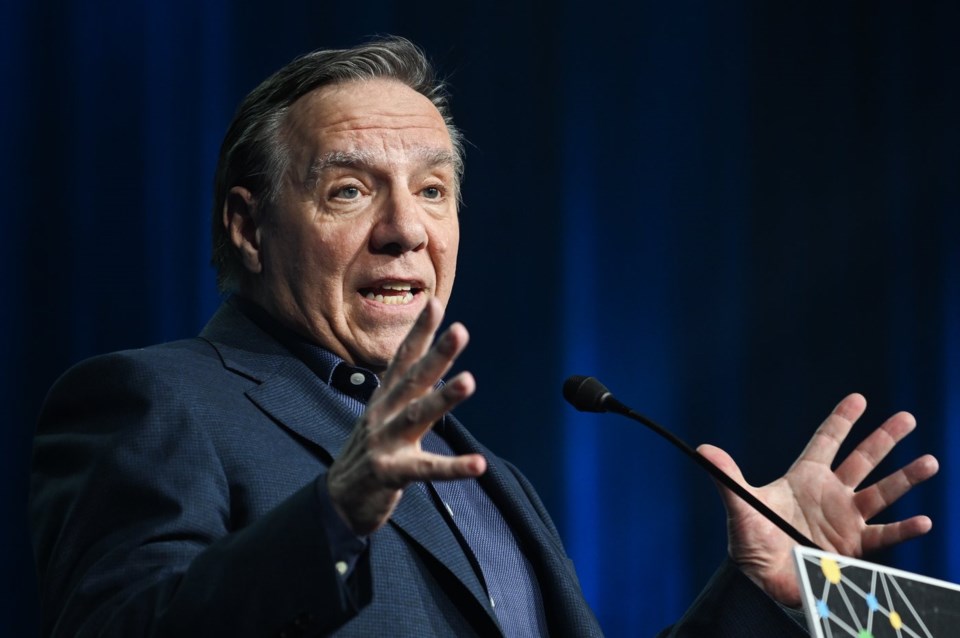MONTREAL — Quebec Premier François Legault says he’s open to “taking major steps” to curb children’s social media use amid pressure from his party's youngest members.
Some 700 members of the Coalition Avenir Québec are gathering in Saint-Hyacinthe, Que., this weekend for a general convention, and among the proposals they're debating is a call from the party's youth wing to ban social media access for those under the age of 16.
Speaking with reporters on Saturday, Legault described social media platforms as “virtual pushers” and compared them to addictive substances.
But the premier’s remarks appear to signal a change of course.
He was dismissive earlier this month when Party Québécois leader Paul St-Pierre Plamondon suggested following the lead of governments in France and Florida, which have banned youth under 14 from opening social media accounts.
And on Thursday, the Legault government refused to debate a PQ motion dealing specifically with the issue.
“It scares me," Legault said of social media on Saturday. "It's creating major mental health problems for young people. The way social media works is to make readers dependent. ... I'm open to taking major steps.”
Elsewhere at the convention, members of several unions held a demonstration outside the venue where party members were gathering to denounce the government's handling of labour talks with the province's workers.
Among them were members of the Fédération interprofessionnelle de la santé du Québec, commonly known as FIQ, which represents 80,000 nurses, practical nurses, respiratory therapists and clinical perfusionists.
FIQ members have been striking since November amid stalled efforts to negotiate a new collective bargaining agreement and rejected the government's last contract offer in April. Saturday's demonstrators called on Legault's government to return to the bargaining table and put forward a proposal that would improve working conditions and increase wages.
The rejected deal, which had been endorsed by union leadership, included general salary increases of at least 17.4 per cent over five years; new premiums for evening, night and weekend work; greater flexibility for workers to control their own schedules; and changes to vacation day accumulation and seniority recognition, among dozens of other measures.
This report by The Canadian Press was first published May 25, 2024.
The Canadian Press



